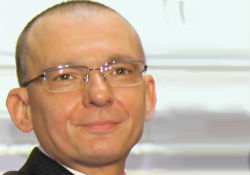Ivan, founder of Italy’s largest liver-patient association

Hepatitis action plan strategic direction 4: financing for sustainability
After consulting with several doctors about my experience with chronic pain and crippling fatigue, I was diagnosed with hepatitis C. By the time I was finally diagnosed, the infection had spread to my liver. My treatment process was very long. I began with interferon therapy, followed by a liver transplant, and then more therapy. The hepatitis virus had destroyed my new liver, so then I received yet another transplant. After, I was diagnosed with fibrosing cholestatic hepatitis, a rapidly progressive liver injury. To me, this diagnosis was a death sentence, as it prevented another transplant. I had 12 months to live, and I felt like a dead man walking.
Then, I found a beacon of hope. I was incredibly lucky to have a compassionate doctor who was willing to support patients trying new hepatitis drugs with compassionate programmes. At this point, it was life or death. For a whole year I was treated with a cocktail of drugs, which really took a toll on me. In the end, it was worth it, because the virus was finally eradicated. I had lived with the disease for 20 years, had two transplants, three cases of cirrhosis, five interferon therapies. I felt as if hepatitis stole 20 years of my life, seizing my mind, body and soul. Hepatitis is a very dangerous disease, but unfortunately it is not perceived as such until it comes close to becoming cirrhosis.
Today, I feel born again. My fibrosis has regressed and my liver is in very good condition. I have gained an additional four years of life, and plan to add many more in the future. I work 10 hours a day, raise my children, and keep all of my commitments. I am still paying the National Health Service for my treatment, but this serves as a reminder of the battle I underwent and how thankful I am to be here today. My journey inspired me to create EpaC, Italy’s largest association of liver patients, to connect patients and remind them that no one is going through the process alone.
Treatment and support outside the hospital are just as important as medical treatment, and I strive for EpaC to connect patients and serve as a beacon of hope and strength.



